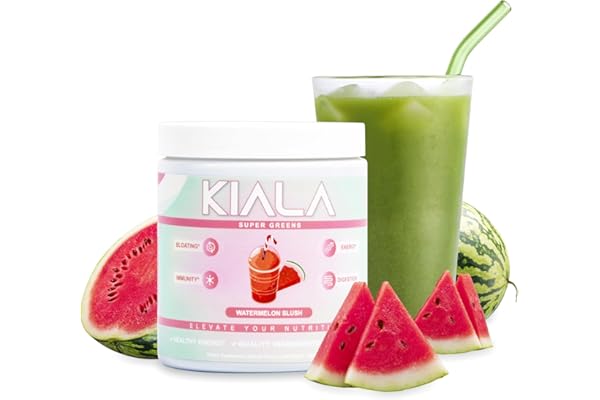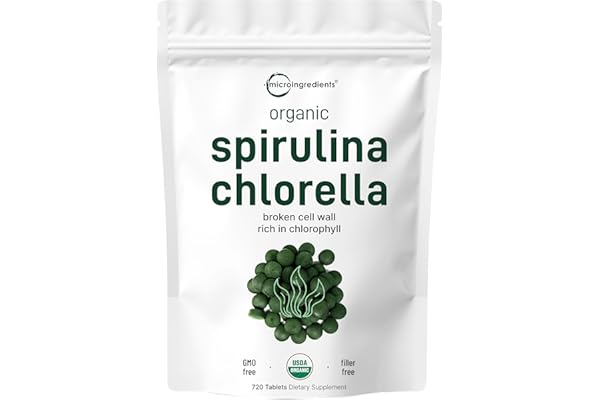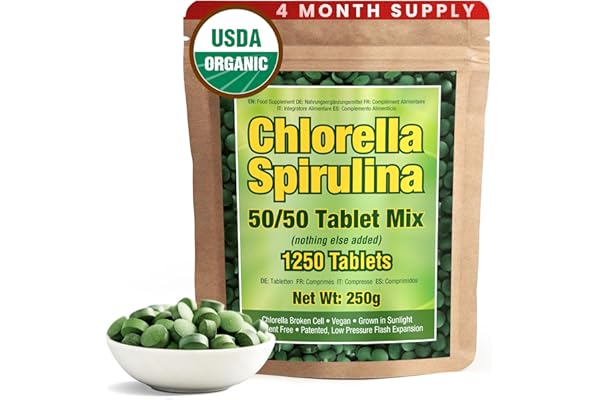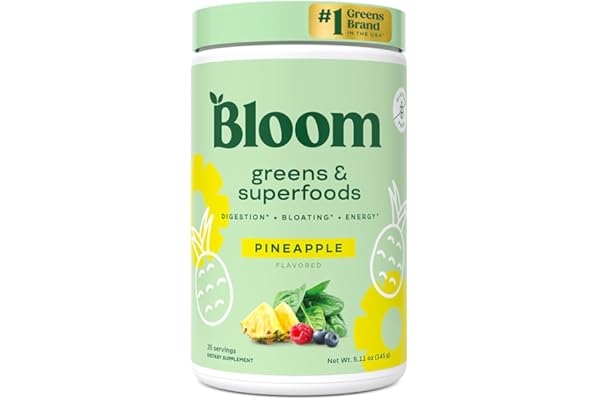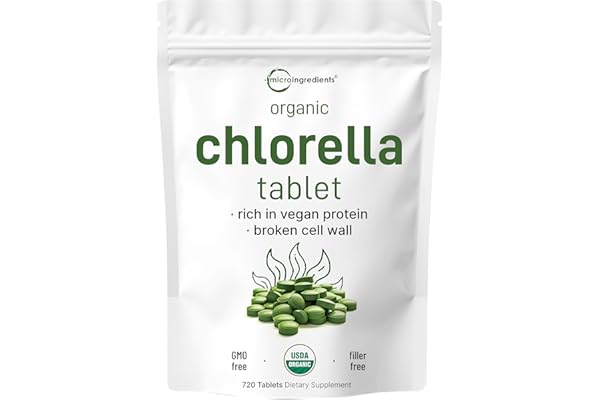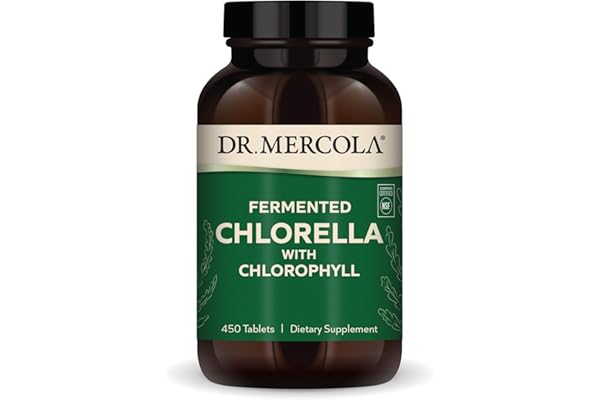Benefits of Chlorella: Key Health Advantages and Uses
Chlorella, a type of green freshwater algae, has gained attention for its impressive nutritional content, and reported health benefits of Chlorella. This algae is rich in complete protein, essential vitamins, minerals, antioxidants, and fiber, making it a powerful supplement for those looking to enhance their overall health.
Studies show that chlorella may help improve cholesterol levels, support detoxification, and provide antioxidant effects that protect the body from oxidative stress.

Many people are exploring chlorella for its potential to support cardiovascular health, boost immune function, and even assist in wound healing and tissue repair. The unique blend of nutrients, such as chlorophyll and beta-carotene, offers more than just basic nourishment and makes chlorella a compelling option for those interested in natural wellness strategies. Learn more about the specific ways chlorella may benefit your health and lifestyle.
Key Takeaways
- Chlorella is a nutrient-dense green algae with a strong nutrition profile.
- It offers various health benefits, including support for heart and metabolic wellness.
- Safe use and proper dosage are important due to possible side effects.
What Is Chlorella?

Chlorella is a nutrient-dense freshwater algae that has become popular in the health food market. Its origins, biological classification, and comparison to similar algae like spirulina are key for understanding its unique characteristics.
Overview of Freshwater Algae
Chlorella is a single-celled green microalga found primarily in freshwater environments. It is distinguished by its high chlorophyll content, which gives it a bright green color and supports its classification as a member of the Chlorophyta group. Chlorella’s structure enables it to photosynthesize efficiently, converting sunlight into energy for growth.
As a whole food, chlorella is rich in protein, dietary fiber, vitamins (including B-complex and vitamin C), minerals like iron and magnesium, and antioxidants. Its dense nutrient profile has earned it the label of a “superfood” within the health food industry.
Chlorella is most often harvested and processed into powders, tablets, or extracts for use as a dietary supplement. It is generally grown in controlled freshwater pools to ensure safety and purity before reaching the consumer.
History and Origins
Chlorella’s discovery dates back to the late 19th century, when it was first identified by Dutch microbiologist Martinus Beijerinck. Initially, its rapid growth and efficiency at converting sunlight into energy led researchers to explore its agricultural potential. After World War II, scientists studied chlorella as a possible protein source to address food shortages.
Interest in chlorella expanded significantly in Japan, where it became popular as a nutritional supplement and a food additive. Advances in mass cultivation allowed production at a larger scale, making chlorella accessible worldwide. Today, it remains especially prominent in Asian diets and alternative wellness circles.
Modern cultivation of chlorella uses closed systems and standardized processing to optimize purity and nutrient density. The algae’s origin story highlights its rise from scientific curiosity to a staple of the global health food market.
Benefits of Chlorella vs. Spirulina
While both chlorella and spirulina are favored as “superfood” supplements, they have notable differences. Chlorella is a freshwater green alga, whereas spirulina is a blue-green algae that also grows in freshwater but can tolerate more alkaline conditions. Their color differences are due to varying chlorophyll and phycocyanin levels.
Chlorella offers higher amounts of certain micronutrients like chlorophyll, iron, and vitamin B12 analogues, but it has a tougher cell wall that sometimes requires mechanical breaking for better nutrient absorption. Spirulina, on the other hand, has a softer, more digestible cell structure and a higher protein content by weight.
Both algae provide antioxidant support and are used as health food supplements, but some individuals may have preferences based on their nutrient needs or tolerances. Comparing chlorella and spirulina in supplement form helps consumers choose the best option for their health goals. For more, see the difference between chlorella and spirulina.
Nutritional Profile of Chlorella

Chlorella is a freshwater algae recognized for its dense concentration of essential nutrients. It provides complete protein, a range of vitamins and minerals, key antioxidants, and healthy fats in significant amounts for a plant source.
Vitamins and Minerals in Chlorella
Chlorella contains a wide spectrum of vitamins and minerals that are vital for human health. Notably, it supplies vitamin B12, which is uncommon in plant-based foods and supports nerve health and metabolism. It is also high in iron, aiding in oxygen transport and tackling deficiencies in plant-based diets.
This algae delivers considerable amounts of vitamin C, which boosts immunity and enhances iron absorption. Folate, vitamin K, and vitamin D are also present in noteworthy levels, supporting cellular function, bone health, and blood clotting. Rich in magnesium and calcium, chlorella assists muscle function and bone maintenance.
Table: Key Vitamins and Minerals in Chlorella
| Nutrient | Importance | Present in Chlorella |
|---|---|---|
| Vitamin B12 | Nerve health | Yes |
| Iron | Oxygen transport | Yes |
| Vitamin C | Immunity | Yes |
| Magnesium | Muscle, nerve health | Yes |
| Calcium | Bone health | Yes |
| Folate | Cell growth | Yes |
| Vitamin K | Blood clotting | Yes |
| Vitamin D | Bone/support | Yes |
Complete Protein and Essential Amino Acids
Chlorella provides a complete protein, meaning it contains all nine essential amino acids required by the body. Protein makes up about 50-60% of its dry weight, making it a rich source compared to other plant foods. These amino acids are crucial for muscle repair, hormone production, and immune function.
Athletes, vegetarians, and vegans may benefit from chlorella’s amino acid profile, since not all plant foods offer complete proteins. The digestibility of chlorella protein is high, allowing the body to make use of its nutrients efficiently. Its protein content also supports satiety and muscle development.
Key Nutrients and Antioxidants Benefits of Chlorella
Chlorella features a wide array of key nutrients and antioxidants. It is especially rich in chlorophyll, the green pigment associated with detoxification. The algae contains beta-carotene and other carotenoids, which act as antioxidants and can be converted into vitamin A for eye and skin health.
Dietary fiber in chlorella helps support digestive health, while niacin is present for boost energy metabolism. Chlorella also supplies omega-3 fatty acids, important for cardiovascular health and brain function. The combination of these phytonutrients, vitamins, and dietary fibers makes chlorella a nutrient-dense choice for supplementation.
Key Health Benefits of Chlorella
Chlorella offers a combination of nutrients that may support the immune system, provide antioxidant compounds, and help the body eliminate environmental toxins. Its benefits are tied to its unique composition and how it interacts with key bodily processes.
Immune System Support
Chlorella contains a high concentration of vitamins, minerals, and phytonutrients that are important for immune function. It is particularly rich in vitamin C, beta-carotene, and zinc, which contribute to T cell and white blood cell activity.
Several studies indicate that chlorella may boost the immune response by increasing production of antibodies and enhancing natural killer cell activity. These effects support the body’s defenses against pathogens and may help people exposed to environmental toxins maintain a responsive immune system.
Researchers have also found that regular consumption of chlorella can modulate inflammation, which is important for balancing the immune response without overstimulation or suppression. For more on these findings, visit the WebMD overview of chlorella.
Powerful Antioxidant Effects
Chlorella is naturally rich in chlorophyll, vitamin C, and carotenoids, all of which are potent antioxidants. Antioxidants neutralize free radicals—unstable molecules produced by metabolism and exposure to toxins—that can damage cells and accelerate aging.
Consuming chlorella may help protect tissues against oxidative stress, especially in people regularly exposed to pollutants or UV radiation. Some research suggests that these antioxidant effects support overall cellular health and may reduce the risk of chronic diseases associated with oxidative damage.
Chlorella’s antioxidant profile has been shown to lower markers of oxidative stress and protect DNA and cellular components against damage. Additional details about the antioxidant content can be found in this MedicineNet article on chlorella.
Promotes Detoxification
A notable benefit of chlorella is its ability to bind to heavy metals and certain environmental toxins in the digestive tract. This helps facilitate the elimination of substances such as mercury, cadmium, and lead, which can accumulate and impact health.
Chlorella’s cell wall structure plays a key role in binding these toxins. Some studies note that regular supplementation supports the body’s natural detox pathways and may even benefit people exposed to industrial pollutants.
In addition to metals, chlorella supports overall cleansing by assisting the liver and kidneys in processing and removing waste. Details on detoxification properties are available in articles like the one from Natural Food Series.
Chlorella for Heart and Metabolic Health
Chlorella, a nutrient-dense green alga, is studied for its effects on heart health and metabolic balance. Research shows it may influence cholesterol profiles, blood pressure regulation, and blood sugar management by providing antioxidants, phytonutrients, and specific vitamins and minerals.
Cholesterol and Blood Lipid Support
Chlorella supplementation has been linked to improvements in cholesterol levels. Clinical studies have shown that taking chlorella daily may help lower total cholesterol, reduce LDL cholesterol (“bad cholesterol”), and decrease triglycerides. This effect is attributed to its high content of dietary fiber, antioxidants, and plant sterols.
By aiding the removal of cholesterol from the digestive tract, chlorella can help promote balanced blood lipid levels. Its antioxidant properties further protect cardiovascular tissues from oxidative stress, which is important for heart health. Support for cholesterol and blood lipid management makes chlorella an appealing option for those interested in natural heart supplements.
These benefits are most pronounced when paired with a balanced diet and regular exercise. Chlorella may offer additional support for those at risk of high cholesterol or heart disease.
Blood Pressure Regulation
Preliminary research suggests that chlorella may assist with maintaining healthy blood pressure. It contains potassium, magnesium, and arginine—nutrients known to support blood vessel relaxation and circulation.
Several small-scale trials observe that people with mildly elevated blood pressure saw improvements after using chlorella. It is believed that its nutrients help blood vessels dilate, supporting optimal blood flow and lowering resistance within arteries.
Antioxidants in chlorella may also shield blood vessels from oxidative damage, further promoting healthy blood pressure. For some individuals, chlorella provides a mild, additional tool for supporting normal blood pressure alongside standard dietary and lifestyle interventions.
Blood Sugar Control
Chlorella may play a role in managing blood sugar levels and improving insulin sensitivity. Clinical data suggest that its unique blend of fiber, proteins, and micronutrients positively influences glucose metabolism.
Some studies report moderate reductions in fasting blood sugar among people taking chlorella, especially those at risk of diabetes or metabolic syndrome. Chlorella’s antioxidants may help reduce inflammation, which supports overall metabolic health and further aids blood sugar regulation.
Ongoing research is exploring whether chlorella contributes to better blood sugar balance in the context of weight management and metabolic wellness. However, it is best used as part of a comprehensive approach with healthy eating and exercise.
Digestive and Gut Health Benefits of Chlorella
Chlorella supports digestive wellness and optimal gut health through its unique nutrient profile and biological properties. Its natural components may influence bowel function, microbiome balance, and the overall environment of the gastrointestinal tract.
Fiber and Constipation Relief
Chlorella contains a significant amount of dietary fiber, which is essential for digestive health. Soluble and insoluble fibers in chlorella encourage bulk formation, which can help move stool through the intestines, promoting regular bowel movements.
For those experiencing constipation, adding fiber to the diet is a well-established strategy for relief. Chlorella’s fiber content works by increasing stool weight and water content, which can ease defecation and reduce discomfort during elimination. This effect is valuable for individuals seeking a natural way to support regularity.
Main benefits of chlorella fiber:
- Supports normal bowel movements
- Helps prevent constipation
- Promotes a feeling of fullness and satisfaction after meals
Fiber is also linked to better absorption of nutrients by slowing the digestive process, which can be helpful for those managing blood sugar or seeking steady energy levels.
Gut Microbiome Support
Chlorella acts as a prebiotic food, fostering the growth of beneficial bacteria such as Lactobacillus acidophilus in the gut. A healthy microbiome can help inhibit harmful bacteria like E. coli and support the immune system, making it an important aspect of gut maintenance.
Regular use of chlorella may help purify the intestines by encouraging a favorable balance of microorganisms. This cleansing effect can lead to less bloating and a more stable digestive environment. Studies suggest that microalgae may also play a role in modulating inflammation within the gut (Martino Clinic).
Chlorella’s contribution to a diverse microbial community is crucial for effective digestion, improved nutrient uptake, and resistance to gastrointestinal disruption.
Potential Role in Disease Prevention
Chlorella contains unique nutrients and antioxidant compounds that may support the body’s natural defenses against certain chronic diseases. Its bioactive components have been studied in the areas of cancer risk, organ health, and respiratory function.
Cancer Prevention Properties
Chlorella has shown promise in the area of cancer prevention through its high antioxidant content, particularly vitamins C and E, chlorophyll, and carotenoids. These compounds can help reduce oxidative stress, which is linked to DNA damage and the development of cancer cells. Animal and limited human studies suggest that chlorella’s antioxidants may help protect cells from mutations induced by radiation and chemicals.
Several trials also indicate that supplementation may reduce some side effects of chemotherapy, including fatigue and weakened immunity. While current research is not conclusive, the potential role of chlorella in cancer prevention and as a supportive nutrient during therapy warrants further study for those seeking dietary strategies for cancer prevention.
Liver and Kidney Support
Chlorella is rich in chlorophyll, which may help protect the liver and kidneys from damage caused by toxins, heavy metals, and oxidative stress. Some studies in both animals and humans suggest that chlorella supplementation helps reduce elevated liver enzymes and supports detoxification processes.
There is evidence that it can bind heavy metals and assist in their removal from the body, which can reduce the burden on these organs. Regular intake may provide additional support for individuals exposed to environmental toxins or those with compromised liver or kidney function, such as people undergoing chemotherapy or living with chronic conditions. The role of chlorella in liver health and kidney health is an area of active research.
Respiratory and Asthma Benefits of Chlorella
For respiratory health, chlorella may have anti-inflammatory effects that benefit people with chronic respiratory conditions like asthma or chronic obstructive pulmonary disease (COPD). Its antioxidants and bioactive molecules can help lower inflammation markers and support the body’s immune response.
Some trials have reported improvements in lung function and reduced frequency of asthma symptoms when taken as a dietary supplement. This makes chlorella an option for those seeking additional strategies to manage asthma or respiratory inflammation. Its combination of antioxidants and immune-modulating nutrients are believed to be the main contributors to these respiratory health benefits.
Other Notable Health Effects
Chlorella supports various aspects of wellness, including vision, cognition, and physical stamina. Its rich nutrient profile addresses several health concerns that matter for daily life and overall performance.
Eye and Skin Health Benefits of Chlorella
Chlorella is a source of carotenoids like lutein, which play a role in protecting eye health. Lutein acts as an antioxidant in eye tissues and supports healthy vision, especially as people age.
The algae also contains vitamins A, C, and E. These vitamins help protect skin cells from oxidative stress and environmental exposure. By providing essential nutrients and antioxidants, chlorella may help maintain the skin’s firmness and elasticity.
Chlorella’s chlorophyll content supports the body’s ability to naturally detoxify, which can impact skin clarity and reduce the likelihood of breakouts. Some users notice their skin looks more vibrant after regular supplementation, though individual effects may vary.
Brain and Cognitive Benefits of Chlorella
Chlorella contains B vitamins, magnesium, and iron—nutrients that support brain health and cognitive function. These nutrients play critical roles in energy production and neurotransmitter synthesis, aiding concentration and memory.
Its antioxidants can help reduce oxidative stress in the brain, a factor linked to cognitive decline over time. Studies have suggested that regular intake may help protect brain cells by neutralizing free radicals.
Iron in chlorella also plays a role in supporting healthy blood flow to the brain. Proper circulation delivers oxygen and nutrients needed for mental clarity and sharp cognitive performance.
Enhances Endurance and Athletic Performance
Chlorella provides a high-quality plant-based protein content, supporting muscle repair and growth for athletes and active individuals. Protein makes up about 50–60% of its composition, supplying all essential amino acids required by the body.
The presence of iron and vitamin B12 in chlorella may boost red blood cell production. This can improve oxygen transport in the body, which is important for sustaining energy during exercise.
Magnesium, potassium, and other minerals help regulate muscle contractions and reduce fatigue. Some research indicates that chlorella may even speed recovery and support endurance in athletes by decreasing markers of exercise-induced stress. For additional details on chlorella’s athletic benefits, see this summary of its role in supporting cardiovascular and circulatory health.
Supplement Types and Dosage Guidelines
Chlorella supplementation comes in several forms, each with distinct advantages in terms of nutrient concentration, convenience, and absorption. Selecting the right dosage depends on the type of chlorella product, how it is consumed, and the reliability of the supplement’s quality.
Chlorella Powder vs. Pills
Chlorella powder and chlorella pills are the most common forms on the market. The powder, usually green and fine, can be mixed into smoothies, juices, and foods. This method allows for flexible dosing and may be preferred by those who wish to avoid swallowing pills.
Chlorella pills or tablets offer convenience and portability, each containing a set amount of chlorella. Pills make it easier for users to track their daily intake without measuring or mixing powders.
Nutritional content can vary between the two types depending on processing. For those seeking higher nutrient concentrations, some products—especially organic powders—may provide more vitamins and minerals per gram, as explained in this guide on chlorella dosage and benefits. Always check product labels for specific concentration values.
How to Take Chlorella
Chlorella is typically used as a dietary supplement and can be added to daily routines in various ways. The recommended dosage ranges widely, but many products suggest starting with 2 to 3 grams per day. Gradually increasing the dosage over several weeks is common to help minimize digestive discomfort.
Timing can differ according to individual preference. Some take chlorella supplements with meals, while others prefer them between meals to boost absorption. Drinking plenty of water with chlorella supports digestion.
It’s important not to exceed the label’s recommended dosage and to consult a healthcare provider if taking medications or if there are preexisting health concerns. Always select the appropriate form—powder or pills—based on lifestyle and nutritional goals.
Third-Party Quality Testing
Independent, third-party testing is crucial for chlorella supplements. Quality testing checks for purity, heavy metals, and microbial contaminants, offering assurance that the product meets safety standards. When choosing a chlorella product, select brands that share certificates of analysis and detail their safety measures.
Look for seals from reputable organizations such as NSF International or USP. Products that lack third-party quality verification may pose risks due to contamination or inaccurate dosage claims.
Prioritizing vetted supplements helps maintain safety, especially since dietary supplements are not as tightly regulated as pharmaceuticals. Reading labels and reviewing test documentation can provide confidence in product choice.
Risks, Side Effects, and Considerations
Chlorella is generally considered safe for most people when taken in moderation, but it can cause side effects and may not be suitable for everyone. Certain medical conditions, allergies, and medications may interact with chlorella, requiring extra caution.
Possible Side Effects
Some individuals experience mild to moderate digestive issues such as diarrhea, nausea, abdominal pain, or bloating when starting chlorella supplements. Headaches and fatigue are also reported in some cases, particularly during the initial days of use.
Skin rashes may occur, especially in those sensitive to algae-based products. These reactions are usually temporary and subside after a short time or upon discontinuation.
Other possible effects include green-colored stool due to chlorophyll content. Most side effects happen within the first few days and do not require treatment. For a more detailed list of potential side effects, see this guide to chlorella side effects.
Allergies and Contraindications
Chlorella can trigger allergic reactions in certain individuals, sometimes causing asthmatic symptoms, swelling, or severe rashes. People allergic to mold or specific algae should avoid it due to the risk of hypersensitivity.
Those with autoimmune diseases or compromised immune systems should consult a doctor before using chlorella, as it may stimulate the immune system. Pre-existing conditions such as hypothyroidism and kidney disease can increase the likelihood of adverse reactions.
Doctors recommend extra caution when using any new supplement if a person has a history of allergies. For more information on allergy risks, refer to this overview of chlorella’s risks.
Medication Interactions
Chlorella can interact with certain medications and supplements. People taking anticoagulant drugs such as warfarin should be cautious, as chlorella contains high levels of vitamin K, which can affect blood clotting.
It may also interfere with immunosuppressive medications, possibly reducing their effectiveness. Some evidence suggests that chlorella might alter the way the body absorbs or breaks down certain medications, though specific drug interactions are not well documented.
Before starting chlorella, it’s advisable for anyone on prescription medications to consult their healthcare provider. Additional details can be found in this discussion about medication interactions and chlorella.
Who Should Avoid Chlorella
Pregnant or breastfeeding women should avoid chlorella unless directed by a healthcare professional, as its safety for these populations is not well established.
Individuals with weakened immune systems, organ transplants, or known allergies to algae should not use this supplement. People with kidney disease or those prone to kidney stones may also need to avoid chlorella due to its mineral content, which can put additional stress on renal function.
Children or those with chronic medical conditions are advised to seek professional guidance before trying chlorella. For a thorough list of groups who should not take chlorella, see this detailed review of considerations and risks.
Benefits of Chlorella Conclusion
Chlorella stands out as a nutrient-dense green alga that offers various health benefits. It supplies protein, vitamins, minerals, and antioxidants in a compact form. Many choose it for its notable nutrient profile.
A few key benefits of Chlorella include:
- Supporting immune system function
- Aiding natural detoxification
- Contributing to better cholesterol levels
- Adding to daily antioxidant intake
Ongoing research continues to explore its effects, but early studies highlight its potential role in supporting cardiovascular health and endurance. Chlorella also contains anti-inflammatory properties, making it interesting for various wellness routines.
Anyone considering chlorella should be aware that benefits may vary depending on individual health status and existing conditions. It is recommended to consult with a healthcare provider before beginning a new supplement.
For more detailed information, see how chlorella provides rich nutrients and supports well-being and learn about its role in detoxification and immune support.
Benefits of Chlorella Frequently Asked Questions
Chlorella is noted for its nutritional density and unique ability to bind certain toxins. It has specific effects on skin health, hormone balance, weight management, and general well-being.
How does chlorella support skin health?
Chlorella contains antioxidants, such as vitamin C and beta carotene, which help protect skin cells from oxidative stress. Its chlorophyll and nutrient content may also support collagen production, aiding in skin repair and appearance.
Can chlorella aid in weight loss efforts?
Chlorella may help regulate cholesterol and blood sugar, which are factors that can influence weight control. Some studies suggest it can promote feelings of fullness and help reduce body fat when combined with a healthy diet and exercise.
What specific benefits can men expect from taking chlorella?
Men may experience improved immune function and cardiovascular support with daily chlorella intake. Its nutrient profile also offers essential vitamins and minerals that support energy, muscle health, and recovery from exercise.
What are the potential side effects of consuming chlorella?
Some individuals may experience mild digestive upset, such as gas or diarrhea, when starting chlorella. Rare allergic reactions can also occur. People taking blood thinners or with immune conditions should consult a healthcare provider before use. Details about possible side effects are available here.
How does chlorella intake affect women’s health?
Chlorella can provide iron, which is important for women, especially those of reproductive age. Its antioxidants support skin health and may assist with hormonal balance, which can benefit women during menstruation or menopause.
What types of toxins can chlorella help remove from the body?
Chlorella’s cell wall contains properties that can bind heavy metals, such as lead and mercury, aiding their removal from the body. It also may help eliminate certain persistent organic pollutants. More on chlorella’s role in detoxification can be found on this page.
Top Chlorella Products
Dr. Mercola, Fermented Chlorella, 90 Servings (450 Tablets), non GMO, Soy-Free, Gluten Free
Related:
Chlorella Information: Pros, Cons, Questions, Answers




